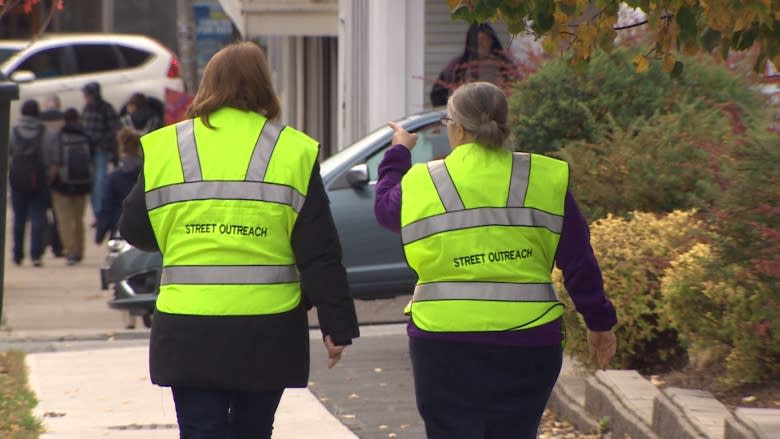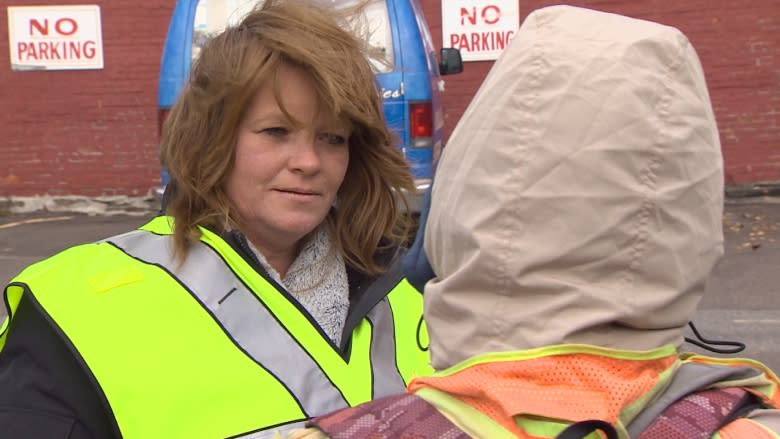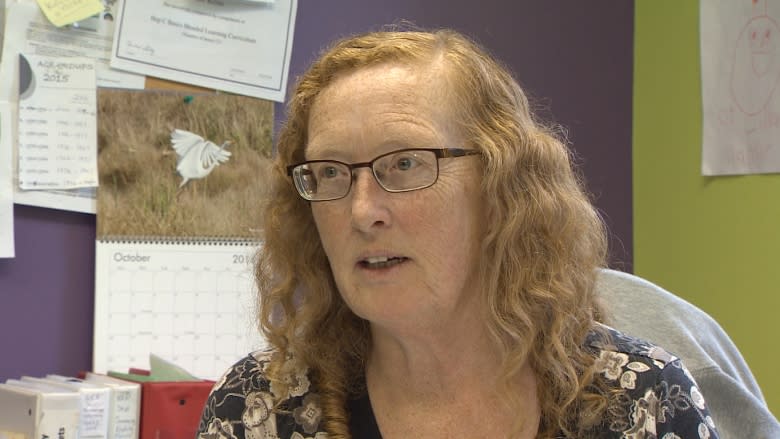Saint John social agencies put foot patrols on streets
Six social agencies in Saint John are sending help to the streets in the form of weekly foot patrols in the area known as Waterloo Village.
"We just introduce ourselves and say we're an outreach team," said Lois Merritt, while on patrol Wednesday afternoon.
"We're here to help you with anything you may need and feel free to talk to us in confidence."
The project targets the homeless and sex trade workers as well as those who struggle with health problems, including addiction and undiagnosed or untreated mental health issues.
Organizers say they're making roughly 50 contacts per month.
Sometimes the patrols offer up referrals and tell people where they can go to get a particular kind of assistance.
Sometimes they'll walk people right to the door of a soup kitchen, a shelter or a health clinic and make introductions.
Problem-solvers
Patrols have also solved a range of problems from helping a man with a resume to helping another man file a missing tax return, which then led to his social benefits being restored.
One patrol team lobbied a landlord to fix the stairs in his building and make them safer for a disabled tenant.
"Every time we're able to connect somebody with an agency and they have some need met, or they have their question answered, or they learn what they need to do next, then we've done an amazing thing," said project co-ordinator Diane Kerns.
The six sponsoring agencies are AIDS Saint John, Sophia Recovery Centre, The Salvation Army, Fresh Start Services for Women, Coverdale Centre and the YWCA.
Kerns said each group lends one worker to a patrol pair.
She said the two-hour shifts they spend together makes a huge difference in terms of inter-agency cooperation and understanding.
Kerns said the idea for the foot patrols came about last June, after the community policing department reported a high number of crisis calls.
The weekly patrols operate mornings and afternoons, which is when most of the calls start coming in.
"The biggest number of calls happen from 10 a.m. until 2 p.m., contrary to what many people might think," said Kerns.
"The community organizations are open, the methadone clinics are open. Businesses are open. A lot of people are coming and going."
Apart from the time commitment, Kerns said the cost of the program is negligible.
She said the only equipment needed are the neon yellow vests, and those were donated. She said the outreach teams want to be visible and recognizable.




